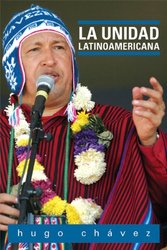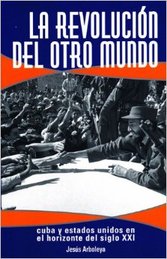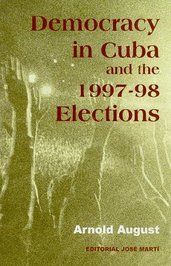The goal of the blog is to provide a foundation for understanding structures of colonial and neocolonial domination of the world-system and for understanding the revolutionary movements that have sought to develop alternative structures. The intention is to formulate an understanding of the essential characteristics of revolutionary processes, in order to contribute to the establishment of the subjective conditions necessary for a new popular revolution in the United States.
I provide here a review of the most important themes.
Preliminary reflections on the Third World: “A blog from the Third World perspective” 6/9/2013; “What is the Third World?” 7/16/2013; “What is the Third World Revolution?” 7/17/2013; “What is the Third World perspective?” 7/18/2013; “Third World anti-neocolonial movement” 7/19/2013; “Obstacles to Third World movements” 7/22/2014; “Revolutionary processes” 7/23/2013; “Third World and Marxism-Leninism” 7/24/2014.
Epistemological reflections: “What is personal encounter?” 7/25/2013; “What is cross-horizon encounter?” 7/26/2013; “Overcoming the colonial denial” 7/29/2013; “Domination and ideology” 3/31/2014; “Reunified historical social science” 4/1/2014; “Universal philosophical historical social science” 4/2/2014; “We can know the true and the good” 4/3/2104; “How can knowledge be reorganized?” 4/4/2014; “Wallerstein, Marx, and knowledge” 4/14/2014; “Universal human values” 4/16/2014; “An alternative epistemology” 4/17/2014.
Reflections on Karl Marx: “Marx and the working class” 1/6/14; “Marx illustrates cross-horizon encounter” 1/7/14; “Marx’s analysis of political economy” 1/8/14; “Marx on human history” 1/9/14; “Marx on the revolutionary bourgeoisie” 1/10/14; “Marx on automated industry” 1/13/14; “Marx on the revolutionary proletariat” 1/14/14; “The social and historical context of Marx” 1/15/14.
Reflections on Immanuel Wallerstein: “Immanuel Wallerstein” 7/30/2013; “Wallerstein: A Critique” 7/31/0213; “Wallerstein and world-systems analysis” 3/25/2014; “Wallerstein and Africa” 3/26/2014; “Wallerstein: Europe-centered or universal?” 3/27/2014; “The terminal crisis of the world-system” 3/28/2014; “Domination and ideology” 3/31/2014; “Reunified historical social science” 4/1/2014; “Universal philosophical historical social science” 4/2/2014; “We can know the true and the good” 4/3/2104; “How can knowledge be reorganized?” 4/4/2014; “Wallerstein on liberalism” 4/6/2014; “Liberals or revolutionaries?” 4/7/2014; “Wallerstein on Leninism” 4/8/2014; “Wallerstein on revolution” 4/9/2014; “Wallerstein, Marx, and knowledge” 4/14/2014; “The alternative world-system from below” 4/15/2014; “Universal human values” 4/16/2014; “An alternative epistemology” 4/17/2014.
The origin and development of the modern world-system: “What is a world-system?” 8/1/2013; “The modern world-economy” 8/2/2013; “Unequal exchange” 8/5/2013; “The origin of the modern world-economy” 8/6/2013; “Modernization of the West” 8/7/2013; “Conquest, gold, and Western development” 8/8/2013; “Consolidation of the world-economy, 1640-1815” 8/19/2013; “New peripheralization, 1750-1850” 8/20/2013; “The world-economy becomes global, 1815-1914” 8/21/2013.
Neocolonialism: “Neocolonialism in Africa and Asia” 9/11/2013; “Neocolonialism in Cuba and Latin America” 9/12/2013; “The neocolonial world-system” 9/13/2013; “The characteristics of neocolonialism” 9/16/2013.
U.S. imperialism: “The origin of US imperialist policies” 9/18/2013; “US Imperialism, 1903-1932” 9/19/2013; “Imperialism and the FDR New Deal” 9/20/2013; “The Cold War and Imperialism” 9/24/2013; “Kennedy and the Third World” 9/25/2013; “The Alliance for Progress” 9/26/2013; “US Imperialism in Latin America, 1963-76” 9/27/2013; “Imperialism falters in Vietnam” 9/30/2013; “Jimmy Carter” 10/1/2013; “Reaganism” 10/4/2013; “Imperialism as neoliberalism” 10/7/2013; “The “neocons” take control” 10/8/2013; “Obama: More continuity than change” 10/9/2013; “Imperialism as basic to foreign policy” 10/10/2013
Venezuela and the new imperialist strategy: “Cuba, Venezuela and freedom of the press” 2/24/2014; “Events in Venezuela” 2/25/2014; “Venezuela and the mass media” 2/27/2014; and “US policy in Latin America and Venezuela” 2/28/2014.
Colonialism, semi-colonialism, and neocolonialism in Latin America: “The open veins of Latin America: Gold and silver” 8/16/2013; “Contradictions in colonial Latin America” 8/22/2013; “Semi-colonial Latin American republics” 8/23/2013; “Free trade in the 19th century” 8/26/2013; “The punishment of independent Paraguay” 8/27/2013; “The open veins of Latin America: Sugar” 8/28/2013; “Indigo, coffee, and liberal reform” 9/2/2013; “The Open Veins of Latin America: Coffee” 9/4/2013; “Liberal reform in 19th century Honduras” 9/5/2013; “The open veins of Latin America: Rubber” 9/6/2013; “The open veins of Latin America: Coffee, Part II” 10/14/2013; “The Open Veins of Latin America: Bananas” 10/15/2013; “The Underground Sources of Power” 10/16/2013; “Petroleum in Latin America” 10/17/2013; “Petroleum in Venezuela” 10/18/2013; “Copper in Chile” 10/22/2013; “Tin in Bolivia” 10/23/2013; “Iron in Venezuela and Brazil” 10/24/2013; “The natural resources of the periphery” 10/25/2013.
The American Revolution: “The US popular movement of 1775-77” 11/1/13; “American counterrevolution, 1777-87” 11/4/13; “Balance of power” 11/5/13; “Popular democracy” 11/6/13; “Social and economic rights” 11/7/13; “Right of nations to self-determination” 11/8/13; “The rights of women” 11/11/13; “Sustainable development” 11/12/13; “The limitations of American democracy” 11/13/13; “What is revolution?” 11/14/13.
The French Revolution: “Bourgeois revolution in France, 1787-1799” 11/25/2013; “The French Revolution in global context” 11/26/2013; “Class and the French Revolution” 11/27/2013; “Popular assemblies” 11/28/2013; “Popular militias” 11/30/2013; “Revolutionary Terror” 12/2/2013; “Revolution and religion” 12/3/2013; “History from below” 12/4/2013.
The Haitian Revolution: “Slave rebellion in Haiti” 12/9/2013; “Toussaint L’Ouverture” 12/10/2013; “The problem of dependency” 12/11/2013; “Toussaint seeks North-South cooperation” 12/12/2013; “Toussaint and racial conciliation” 12/13/2013; “Toussaint and revolutionary terror” 12/16/2013; “The isolation and poverty of Haiti” 12/17/2013; and “Lessons from the Haitian Revolution” 12/18/2013.
The Paris Commune: “The Paris Commune” 1/20/2014.
The Russian Revolution: “The Russian Revolution (February)” 1/22/2014; “The Russian Revolution (October)” 1/23/2014; “The proletarian vanguard” 1/24/2014; “The revolutionary party of the vanguard” 1/25/2014; “A permanent global revolution” 1/27/2014; “The role of the petit bourgeoisie” 1/28/2014; and “Reflections on the Russian Revolution” 1/29/2014.
The Mexican Revolution: “The Mexican Revolution” 2/3/2014; “Liberal reform and the Porfirian era” 2/4/2014; “Peasant armies occupy Mexico City, 2014” 2/5/2014; “Zapata” 2/6/2014; “Pancho Villa” 2/7/2014; “A peasant-worker alliance from above” 2/10/2014; “The consolidation of reform from above” 2/11/2011; “The new Mexican bourgeoisie of 1920” 2/12/2014; “The Morelos commune” 2/13/2014; “The proletariat and the Mexican Revolution” 2/14/2014; “Flores Magón and the petit bourgeoisie” 2/17/2014; “The legacy of the Mexican Revolution” 2/18/2014; and “Lessons of the Mexican Revolution” 2/19/2014.
The crisis of the world system: “The terminal crisis of the world-system” 3/28/2014.
Latin American and Caribbean unity: An alternative world-system in embryo?: “The dream of La Patria Grande” 3/4/2014; “The dream deferred” 3/5/2014; “The dream renewed” 3/6/2014; “The fall of FTAA” 3/7/2014; “The rise of ALBA” 3/11/2014; “Latin American union and integration” 3/13/2014; “The Declaration of Havana 2014” 3/14/2014; “The erosion of neocolonialism” 3/17/2014; “A change of epoch?” 3/18/2014; “Is Marx today fulfilled?” 3/20/2014; “The alternative world-system from below” 4/15/2014.
Revolution: ¨Revolutionary Processes¨ 7/23/2014; “Revolution and the modern world-system” 10/31/2013; “How can knowledge be reorganized?” 4/4/2014; “Wallerstein on revolution” 4/9/2014
I provide here a review of the most important themes.
Preliminary reflections on the Third World: “A blog from the Third World perspective” 6/9/2013; “What is the Third World?” 7/16/2013; “What is the Third World Revolution?” 7/17/2013; “What is the Third World perspective?” 7/18/2013; “Third World anti-neocolonial movement” 7/19/2013; “Obstacles to Third World movements” 7/22/2014; “Revolutionary processes” 7/23/2013; “Third World and Marxism-Leninism” 7/24/2014.
Epistemological reflections: “What is personal encounter?” 7/25/2013; “What is cross-horizon encounter?” 7/26/2013; “Overcoming the colonial denial” 7/29/2013; “Domination and ideology” 3/31/2014; “Reunified historical social science” 4/1/2014; “Universal philosophical historical social science” 4/2/2014; “We can know the true and the good” 4/3/2104; “How can knowledge be reorganized?” 4/4/2014; “Wallerstein, Marx, and knowledge” 4/14/2014; “Universal human values” 4/16/2014; “An alternative epistemology” 4/17/2014.
Reflections on Karl Marx: “Marx and the working class” 1/6/14; “Marx illustrates cross-horizon encounter” 1/7/14; “Marx’s analysis of political economy” 1/8/14; “Marx on human history” 1/9/14; “Marx on the revolutionary bourgeoisie” 1/10/14; “Marx on automated industry” 1/13/14; “Marx on the revolutionary proletariat” 1/14/14; “The social and historical context of Marx” 1/15/14.
Reflections on Immanuel Wallerstein: “Immanuel Wallerstein” 7/30/2013; “Wallerstein: A Critique” 7/31/0213; “Wallerstein and world-systems analysis” 3/25/2014; “Wallerstein and Africa” 3/26/2014; “Wallerstein: Europe-centered or universal?” 3/27/2014; “The terminal crisis of the world-system” 3/28/2014; “Domination and ideology” 3/31/2014; “Reunified historical social science” 4/1/2014; “Universal philosophical historical social science” 4/2/2014; “We can know the true and the good” 4/3/2104; “How can knowledge be reorganized?” 4/4/2014; “Wallerstein on liberalism” 4/6/2014; “Liberals or revolutionaries?” 4/7/2014; “Wallerstein on Leninism” 4/8/2014; “Wallerstein on revolution” 4/9/2014; “Wallerstein, Marx, and knowledge” 4/14/2014; “The alternative world-system from below” 4/15/2014; “Universal human values” 4/16/2014; “An alternative epistemology” 4/17/2014.
The origin and development of the modern world-system: “What is a world-system?” 8/1/2013; “The modern world-economy” 8/2/2013; “Unequal exchange” 8/5/2013; “The origin of the modern world-economy” 8/6/2013; “Modernization of the West” 8/7/2013; “Conquest, gold, and Western development” 8/8/2013; “Consolidation of the world-economy, 1640-1815” 8/19/2013; “New peripheralization, 1750-1850” 8/20/2013; “The world-economy becomes global, 1815-1914” 8/21/2013.
Neocolonialism: “Neocolonialism in Africa and Asia” 9/11/2013; “Neocolonialism in Cuba and Latin America” 9/12/2013; “The neocolonial world-system” 9/13/2013; “The characteristics of neocolonialism” 9/16/2013.
U.S. imperialism: “The origin of US imperialist policies” 9/18/2013; “US Imperialism, 1903-1932” 9/19/2013; “Imperialism and the FDR New Deal” 9/20/2013; “The Cold War and Imperialism” 9/24/2013; “Kennedy and the Third World” 9/25/2013; “The Alliance for Progress” 9/26/2013; “US Imperialism in Latin America, 1963-76” 9/27/2013; “Imperialism falters in Vietnam” 9/30/2013; “Jimmy Carter” 10/1/2013; “Reaganism” 10/4/2013; “Imperialism as neoliberalism” 10/7/2013; “The “neocons” take control” 10/8/2013; “Obama: More continuity than change” 10/9/2013; “Imperialism as basic to foreign policy” 10/10/2013
Venezuela and the new imperialist strategy: “Cuba, Venezuela and freedom of the press” 2/24/2014; “Events in Venezuela” 2/25/2014; “Venezuela and the mass media” 2/27/2014; and “US policy in Latin America and Venezuela” 2/28/2014.
Colonialism, semi-colonialism, and neocolonialism in Latin America: “The open veins of Latin America: Gold and silver” 8/16/2013; “Contradictions in colonial Latin America” 8/22/2013; “Semi-colonial Latin American republics” 8/23/2013; “Free trade in the 19th century” 8/26/2013; “The punishment of independent Paraguay” 8/27/2013; “The open veins of Latin America: Sugar” 8/28/2013; “Indigo, coffee, and liberal reform” 9/2/2013; “The Open Veins of Latin America: Coffee” 9/4/2013; “Liberal reform in 19th century Honduras” 9/5/2013; “The open veins of Latin America: Rubber” 9/6/2013; “The open veins of Latin America: Coffee, Part II” 10/14/2013; “The Open Veins of Latin America: Bananas” 10/15/2013; “The Underground Sources of Power” 10/16/2013; “Petroleum in Latin America” 10/17/2013; “Petroleum in Venezuela” 10/18/2013; “Copper in Chile” 10/22/2013; “Tin in Bolivia” 10/23/2013; “Iron in Venezuela and Brazil” 10/24/2013; “The natural resources of the periphery” 10/25/2013.
The American Revolution: “The US popular movement of 1775-77” 11/1/13; “American counterrevolution, 1777-87” 11/4/13; “Balance of power” 11/5/13; “Popular democracy” 11/6/13; “Social and economic rights” 11/7/13; “Right of nations to self-determination” 11/8/13; “The rights of women” 11/11/13; “Sustainable development” 11/12/13; “The limitations of American democracy” 11/13/13; “What is revolution?” 11/14/13.
The French Revolution: “Bourgeois revolution in France, 1787-1799” 11/25/2013; “The French Revolution in global context” 11/26/2013; “Class and the French Revolution” 11/27/2013; “Popular assemblies” 11/28/2013; “Popular militias” 11/30/2013; “Revolutionary Terror” 12/2/2013; “Revolution and religion” 12/3/2013; “History from below” 12/4/2013.
The Haitian Revolution: “Slave rebellion in Haiti” 12/9/2013; “Toussaint L’Ouverture” 12/10/2013; “The problem of dependency” 12/11/2013; “Toussaint seeks North-South cooperation” 12/12/2013; “Toussaint and racial conciliation” 12/13/2013; “Toussaint and revolutionary terror” 12/16/2013; “The isolation and poverty of Haiti” 12/17/2013; and “Lessons from the Haitian Revolution” 12/18/2013.
The Paris Commune: “The Paris Commune” 1/20/2014.
The Russian Revolution: “The Russian Revolution (February)” 1/22/2014; “The Russian Revolution (October)” 1/23/2014; “The proletarian vanguard” 1/24/2014; “The revolutionary party of the vanguard” 1/25/2014; “A permanent global revolution” 1/27/2014; “The role of the petit bourgeoisie” 1/28/2014; and “Reflections on the Russian Revolution” 1/29/2014.
The Mexican Revolution: “The Mexican Revolution” 2/3/2014; “Liberal reform and the Porfirian era” 2/4/2014; “Peasant armies occupy Mexico City, 2014” 2/5/2014; “Zapata” 2/6/2014; “Pancho Villa” 2/7/2014; “A peasant-worker alliance from above” 2/10/2014; “The consolidation of reform from above” 2/11/2011; “The new Mexican bourgeoisie of 1920” 2/12/2014; “The Morelos commune” 2/13/2014; “The proletariat and the Mexican Revolution” 2/14/2014; “Flores Magón and the petit bourgeoisie” 2/17/2014; “The legacy of the Mexican Revolution” 2/18/2014; and “Lessons of the Mexican Revolution” 2/19/2014.
The crisis of the world system: “The terminal crisis of the world-system” 3/28/2014.
Latin American and Caribbean unity: An alternative world-system in embryo?: “The dream of La Patria Grande” 3/4/2014; “The dream deferred” 3/5/2014; “The dream renewed” 3/6/2014; “The fall of FTAA” 3/7/2014; “The rise of ALBA” 3/11/2014; “Latin American union and integration” 3/13/2014; “The Declaration of Havana 2014” 3/14/2014; “The erosion of neocolonialism” 3/17/2014; “A change of epoch?” 3/18/2014; “Is Marx today fulfilled?” 3/20/2014; “The alternative world-system from below” 4/15/2014.
Revolution: ¨Revolutionary Processes¨ 7/23/2014; “Revolution and the modern world-system” 10/31/2013; “How can knowledge be reorganized?” 4/4/2014; “Wallerstein on revolution” 4/9/2014








 RSS Feed
RSS Feed











